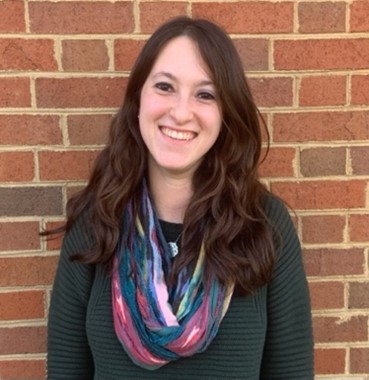American Psychological Association Division 50

Rachel Geyer, BA
Miami University
Rachel Geyer just finished her second year of her Clinical Psychology PhD program at Miami University, where she is co-advised by Dr. Elise Clerkin [Anxiety, Cognition, and Emotion (ACE) Lab] and Dr. Joshua Magee [Studying Cognition, Obsessions, and Unwanted Thinking (SCOUT) Lab]. She also collaborates with Dr. Rose Marie Ward. Her current research projects include examining transdiagnostic risk factors that influence both anxiety and alcohol use (e.g., anxiety sensitivity, distress tolerance), and alcohol use patterns, motives, and problems. This past semester, she was excited to be nominated as Miami University’s Graduate Student of the Week, which was showcased across Miami University’s social media accounts and website. Rachel also just received an acceptance for her Association for Behavioral and Cognitive Therapies (ABCT) poster, “Anxiety Sensitivity, Panic, Distress Tolerance and Alcohol Use Problems: A Moderated Mediation” for the Fall 2021 ABCT Conference in New Orleans. This past year, Rachel was proud of weathering the COVID-19-related ups and downs of frequently pivoting, shifting, and redoing the protocol for her master’s project, including modifying it from an in-person behavioral study to one that could take place entirely online – where she was able to make these changes while still investigating her variables of interest.




Norman Hoffmann, PhDa,b, Al Kopak, PhDa, Kaitlin Guston, MSc, Steven Proctor, PhDd
aWestern Carolina University
bEvince Diagnostics, LLC
cUniversity of North Dakota
dPRO HealthGroup
Current projects include several research efforts in documenting the prevalence of behavioral health conditions among recently arrested inmates in rural jails. Rural county jails constitute the largest number of correctional facilities in the US. We undertook this effort in response to a sheriff’s frustration with not having documentation concerning the problems faced in his correctional facility. I initially enlisted a graduate student to interview inmates using the paper version of the CAAPE-5 (Comprehensive Addiction And Psychological Evaluation-5), a structured interview compatible with the DSM-5. The Western Carolina University IRB approved the study. This work has supported two master’s theses and a doctoral dissertation in addition to generating a number of articles on recidivism and brief screening items for depression and PTSD. Among the most salient findings are that severe stimulant use disorder is more prevalent than opioid or other diagnoses in rural communities in the two states where we are working. Stimulant use disorder seems overlooked in policy discussions. Stimulant and opioid use disorders and injection of any substance to get high are the strongest predictors of criminal recidivism defined as rebooking into the jail.
Raggio, A.L., Hoffmann, N. G., & Kopak, A. M. (2017). Results from a comprehensive assessment of behavioral health problems among rural jail inmates. Journal of Offender Rehabilitation, 56:3, 217-235, DOI: 10.1080/10509674.2017.1290006
Proctor, S. L., Hoffmann, N. G., & Raggio, A. (2018). Prevalence of substance use disorders and psychiatric conditions among county jail inmates: Changes and stability over time. Criminal Justice and Behavior. Advance online publication. Criminal Justice and Behavior. doi: 10.1177/0093854818796062
Kopak, A. M., Guston, K., Maness, L., & Hoffmann, N. G. (2019). A prospective study of behavioral health indicators and repeat jail admissions among rural jail inmates. Health and Justice, 7:5, 1-10 https://doi.org/10.1186/s40352-019-0087-8

Resources are available for those struggling with addiction and numerous effective treatments exist. Whether you are looking for help for yourself or a loved one, we encourage you to seek out help.